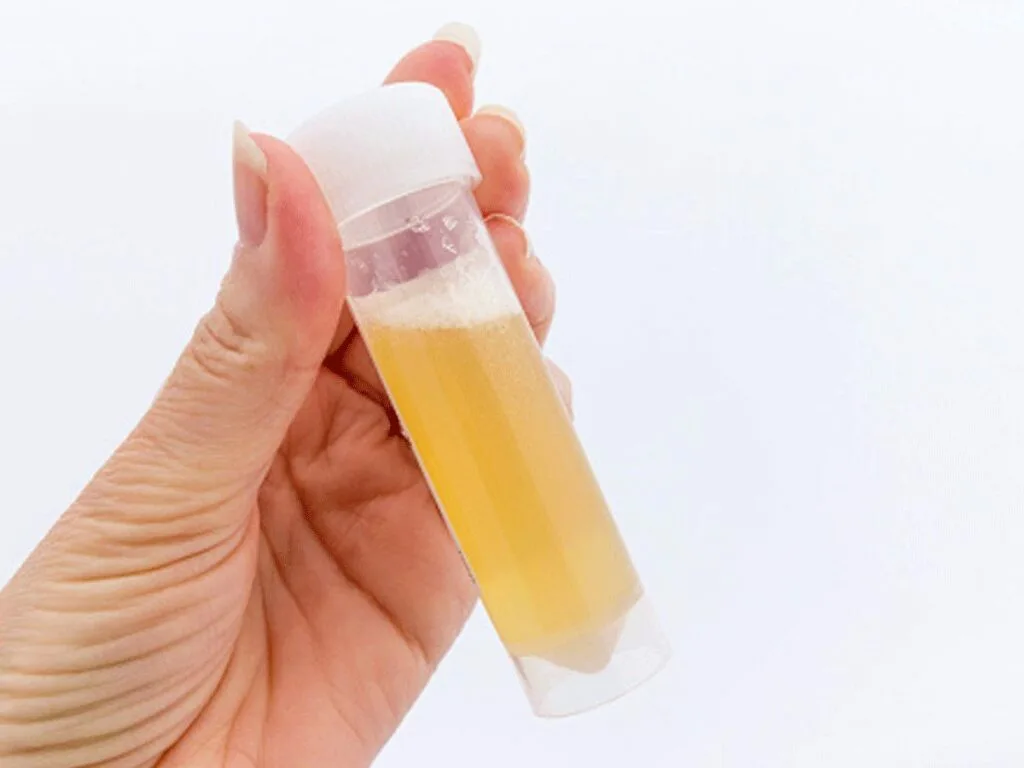Why is my urine foamy and bubbly? Seeing foam or bubbles in your urine can be alarming, and naturally, the first question that pops into your head is: “Is something wrong with me?” While foamy urine isn’t always a sign of a serious problem, it’s important to understand the potential causes and know when to seek medical advice.
What’s Considered “Foamy” Urine?
We’re not talking about a few stray bubbles here. Foamy urine refers to a persistent, soapy appearance that lingers in the toilet bowl after you’ve urinated. It looks more like the head on a beer than just a few air bubbles.
Common Causes of Foamy Urine
According to the Clinical Journal of the American Society, the most common cause for foamy urine is proteinuria, which means you have an abnormally high level of protein in your urine.
Here’s why that happens and why it can cause foam:
- Healthy Kidneys: The Filter System: Your kidneys act as filters, preventing essential substances like protein from escaping into your urine.
- Kidney Damage: The Leak: If your kidneys are damaged, they may not be able to filter protein effectively, allowing it to leak into your urine.
- Protein’s Role in Foam: Protein reduces the surface tension of urine, allowing bubbles to form and stabilize, creating the foamy appearance.
Learn more about foamy urine vs bubbly urine here.
Why Does Protein Leak into Urine? Potential Causes:
In a review of studies published in 2015, researchers found evidence that proteinuria can be a symptom of various underlying conditions, including:
- Kidney Disease: This is the most serious potential cause and can include conditions like chronic kidney disease (CKD), glomerulonephritis (inflammation of the kidney’s filtering units), and diabetic nephropathy (kidney damage from diabetes).
- Hypertension (High Blood Pressure): High blood pressure can damage the blood vessels in the kidneys over time, leading to proteinuria.
- Diabetes: As mentioned above, diabetes can damage the kidneys and cause protein to leak into the urine.
- Preeclampsia: This condition occurs during pregnancy and is characterized by high blood pressure and proteinuria.
- Autoimmune Diseases: Conditions like lupus can affect the kidneys.
- Multiple Myeloma: A type of cancer that can cause the production of abnormal proteins that damage the kidneys.
Learn more about what causes foamy urine here.
Other, Less Serious Causes of Foamy Urine:
One small 2024 study found that foamy urine isn’t related to kidney problems. Here are some less concerning possibilities:
- Dehydration: When you’re dehydrated, your urine becomes more concentrated, which can make any existing small amount of protein appear more pronounced and foamy.
- Rapid Urination: A powerful stream of urine can sometimes create temporary foam.
- Concentrated Urine: Similar to dehydration, if you haven’t urinated in a while, your urine may be more concentrated.
- Certain Medications: Some medications can affect urine composition.
- Semen in Urine (Retrograde Ejaculation): This can cause a foamy appearance, especially in men.
Learn more about how clean urine is here.
When to Seek Medical Attention
It’s important to consult a doctor if you experience:
- Persistent foamy urine: If the foam consistently appears in your urine, even when you’re well-hydrated.
- Other symptoms: If you experience any other symptoms along with foamy urine, such as swelling in your ankles, feet, or hands (edema), fatigue, nausea, loss of appetite, changes in urination habits (frequency, urgency, or color), or high blood pressure, see a doctor immediately.
- Underlying health conditions: If you have diabetes, high blood pressure, or a family history of kidney disease, you should be especially vigilant about monitoring your urine and reporting any abnormalities to your doctor.
Learn more about what causes a split urine stream in women here.
What to Expect at the Doctor’s Office
Your doctor will likely ask about your medical history, perform a physical exam, and order some tests, including:
- Urinalysis: This test checks for the presence of protein and other abnormalities in your urine.
- Blood tests: Blood tests can assess kidney function and help identify other potential causes of proteinuria.
- 24-hour urine collection: This test measures the amount of protein in your urine over 24 hours.
Learn more about the reason for cloudy urine here.
Treatment
Some studies suggest that the treatment for foamy urine depends on the underlying cause. If it’s due to dehydration, simply drinking more fluids may be enough.
If it’s due to kidney disease or another medical condition, you’ll need to follow your doctor’s recommendations for treatment, which may include medication, lifestyle changes, or other therapies.
Learn more about what causes a split urine stream in men here.
A Word From GetMe Treated
Understanding the causes of foamy urine can help answer, “Why is my urine foamy and bubbly?” and determine if it’s harmless or requires medical attention. If foam appears consistently or with other symptoms, get a proper diagnosis.
Staying hydrated, managing health conditions, and maintaining a balanced diet can help prevent foamy urine and support kidney health. Always listen to your body and consult a healthcare professional when needed.
Learn more about the benefits of drinking own urine here.
FAQs About Why Is My Urine Foamy And Bubbly
Can foamy urine indicate kidney disease?
Yes, it can be a sign of kidney issues.
Is occasional foamy urine normal?
Yes, especially due to dehydration or fast urination.
How much water should I drink?
Aim for 8 glasses (2 liters) a day.
What symptoms should I watch for?
Look out for swelling, fatigue, or urine color changes.
Does foamy urine always mean kidney problems?
No, it can also be caused by dehydration or rapid urination.
Can a UTI cause foamy urine?
Yes, especially if it affects the kidneys.
Join Our Telegram Channel

